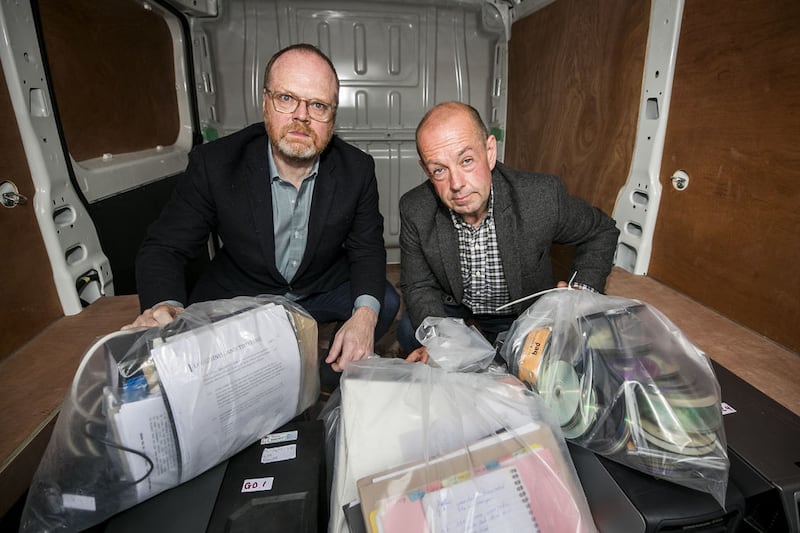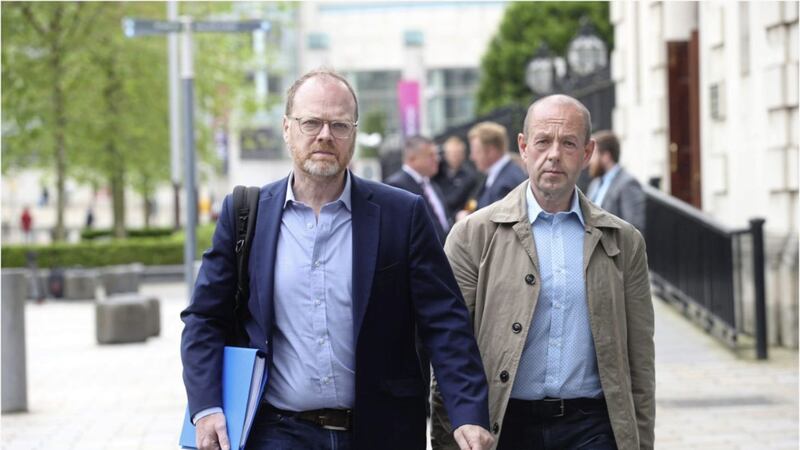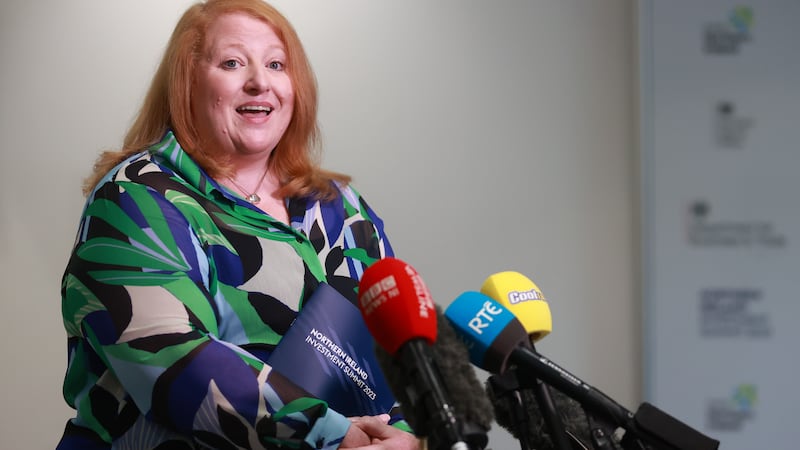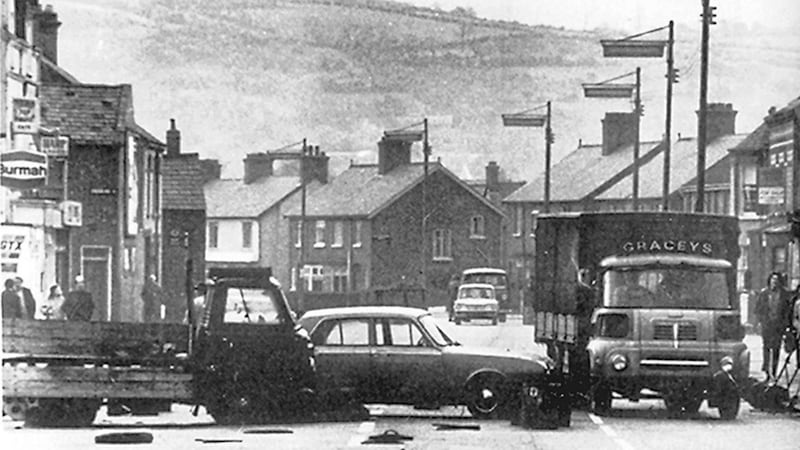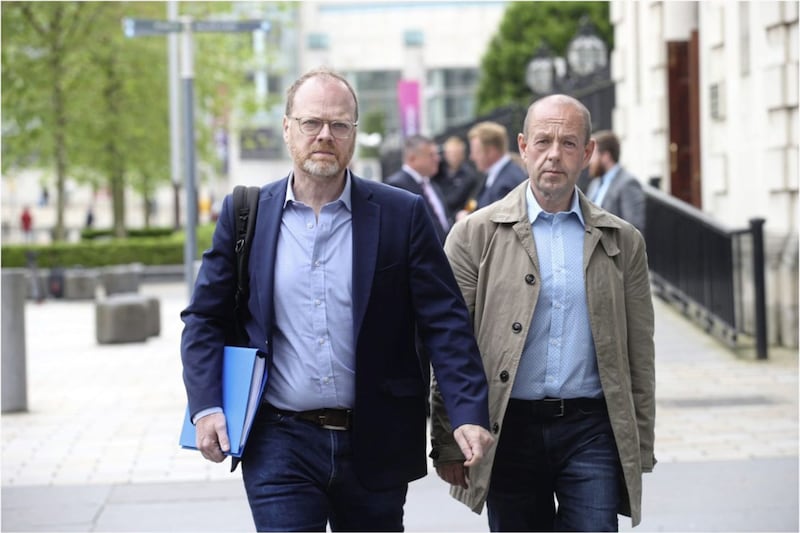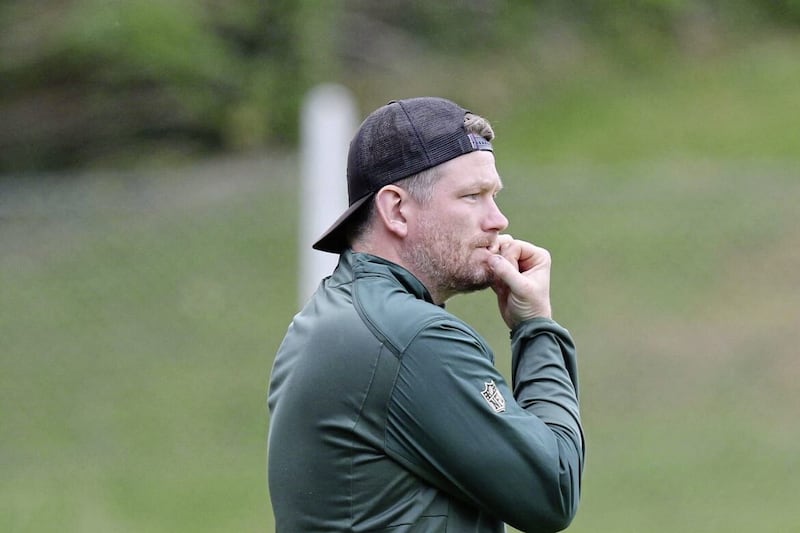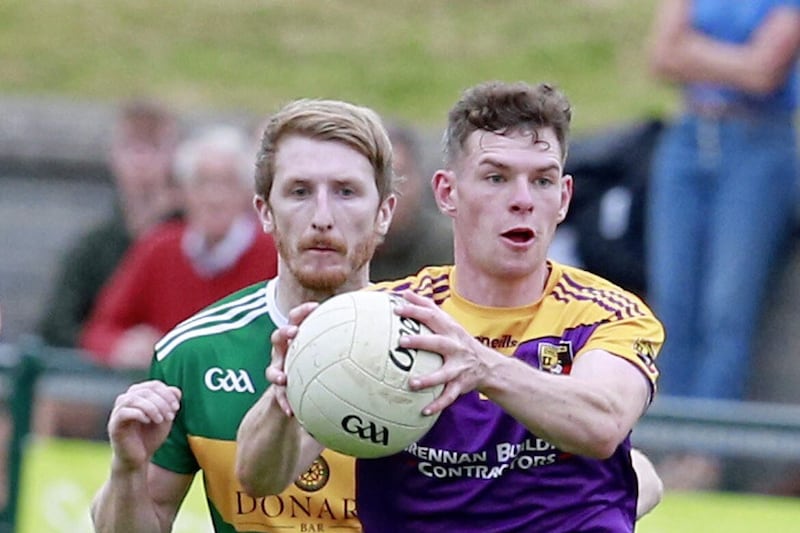Police wrongly obtained warrants to carry out raids on the homes and offices of two journalists at a hearing which fell "woefully short" of fair standards, the High Court ruled today.
Senior judges identified no grounds for the authorisation which led to the arrest of Trevor Birney and Barry McCaffrey.
Lord Chief Justice Sir Declan Morgan also stressed that the pair had at all times acted as investigative reporters adhering to their professional code.
He said: "We see no overriding requirement in the public interest which could have justified an interference with the protection of journalistic sources in this case."
The search permits were obtained as part of an investigation into the alleged theft of confidential documents from the Northern Ireland Police Ombudsman's Office.
In August 2018 Mr Birney and Mr McCaffrey were detained, questioned and released in a case linked to an Emmy-nominated documentary film on the Loughinisland atrocity.
Raids were also carried out at their residential and work premises during an operation undertaken by detectives from Durham Constabulary, supported by PSNI officers. Computer equipment, files, phones, cameras and notebooks were all seized.
Read more:Loughinisland journalists demand apology from PSNI chief after search warrant quashed
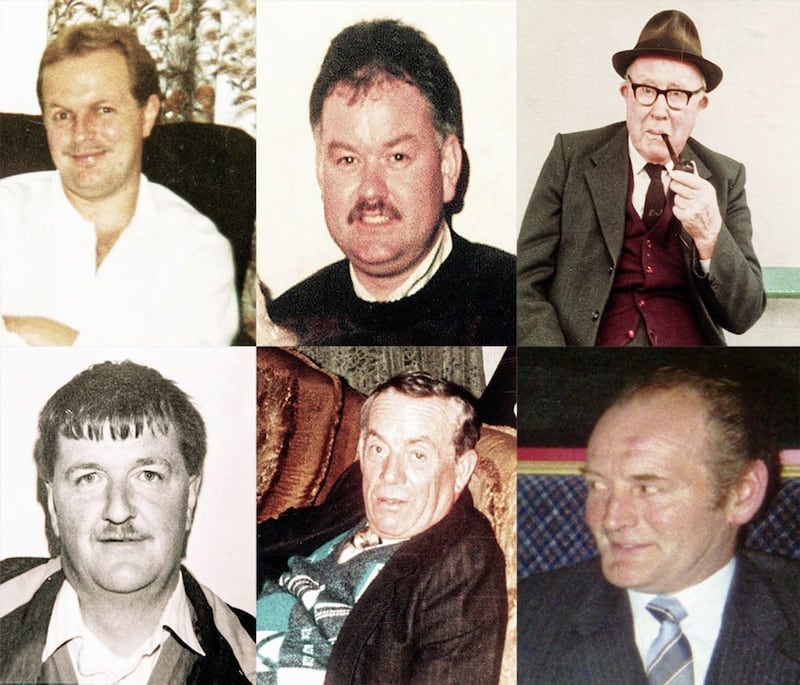
The case was connected to the No Stone Unturned documentary, which examined the Royal Ulster Constabulary's handling of the loyalist murders of six Catholic men at Loughinisland, Co Down in June 1994.
In May last year the journalists won their challenge to the legality of warrants granted at an ex parte hearing. Judges found that authorisation for the searches had been inappropriate, and that both Mr Birney and Mr McCaffrey acted in line with the National Union of Journalists' (NUJ) code in protecting sources.
In court today detailed reasons were given for the decision reached. Sir Declan emphasised the need for fairness at the hearing to obtain warrants - especially where it involved a significant interruption with private and family lives.
"No matter how sensitively done, the unannounced arrival of several police vehicles and seven or eight uniformed officers exercising the power to enter and search one's home while young children were wakening up preparing for school and guests were bemused to see their host being arrested constituted such an intrusion," he said.
Claims that the journalists may have tried to dispose of material if served with advance notice were rejected.
The Lord Chief Justice also found nothing to back contentions that any publication could create a risk to the life of anyone named as suspects in the documentary. He pointed out that the journalists had acted responsibly, seeking a meeting with senior police to raise the issue of any risk, and also refraining from
publishing the identity of an alleged informant.
The court also referred to email traffic obtained after the warrants were executed, where Mr Birney and Mr McCaffrey discussed the risk of steps being
taken by the police to try to establish the source of the leak.
But Sir Declan said there was nothing suspicious or inappropriate about those exchanges.
"It is exactly what one would expect a careful, professional investigative journalist to do in anticipation of any attempt to identify a source," he said.
"It does not lead to any inference that such a journalist would commit a contempt of court."
Confirming the decision reached in the case, he concluded: "For the reasons given we concluded that the conduct of this hearing fell woefully short of the standard required to ensure that the hearing was fair."
The National Union of Journalists (NUJ) has described the judgement as "an important and historic victory for all journalists working in the public interest".
NUJ General Secretary Michelle Stanistreet said the judges had placed a "bold emphasis... on the right of journalists to protect their sources".
"Today they have clearly stated that the most appropriate procedures to use in law in any attempt to access journalistic material is not ex parte search warrants.
"Journalists must not be treated as criminals, they must not have their homes and offices raided, simply for doing their jobs.
"This judgement comes at a time when journalism is in crisis and our society is in turmoil. This judgement is good news for democracy and it sends a clear signal to the authorities and to all those working to serve the public interest with quality, investigative journalism."
Gerry Carson, chair of the NUJ’s Belfast and District Branch, said Mr McCaffrey and Mr Birney had "stuck firmly to the ethics and rules of the National Union of Journalists, facts borne out by the Lord Chief Justice, and so doing have strengthened the values and benefits of being active members of our union".
Amnesty International's Northern Ireland Programme Director Patrick Corrigan welcomed the judgement which he said was "a landmark decision for press freedom".
Read more:Loughinisland journalists demand apology from PSNI chief after search warrant quashed
